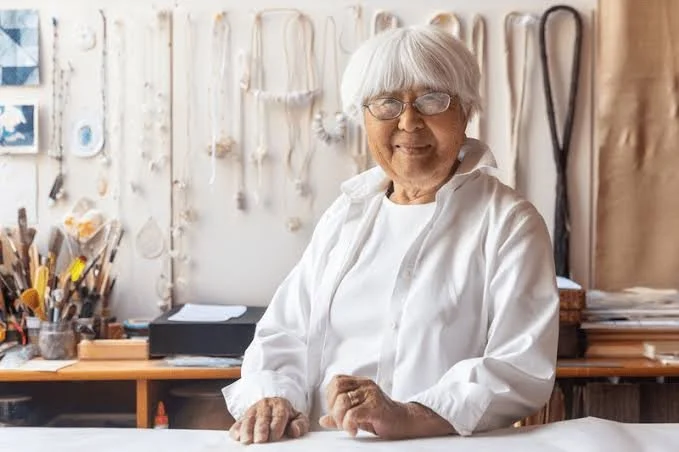Born in San Francisco, California (b. 1926)
Kay Sekimachi
Amiyose, 1965
Nylon monofilament
© Kay Sekimachi. Photo by Ian Reeves.
Berkeley-based fiber artist Kay Sekimachi is perhaps best known for her otherworldly woven hangings in nylon monofilament, which she began creating on a twelve-harness loom in the 1960s. Sekimachi first received samples of nylon monofilament in 1956 from a fellow artist whose mother worked for the DuPont chemical company. Typically used as fishing line, monofilament is a firm, synthetic fiber that holds a wider variety of shapes more successfully than natural, spun strands, and Sekimachi found it perfectly suited to her pursuit of organic abstraction. Made of clear monofilament but effectively milky white, the works in the Amiyose series, which takes its title from the Japanese word for “multilayered,” were formed from multiple woven layers curled into flowing columns. To create them, the artist wove monofilament into flat sheets, which she unfurled off the loom and twisted into spontaneous volumes, then added woven strips that spiral around the central spine before threading a single piece of monofilament through the work to create a vertical axis. The artist noted the “excitement” she felt when she “was able to open up the multilayered cloth by hanging it from the ceiling and have the weaving exposed because of the stiffness and translucency of the monofilament.”
Kay Sekimachi in her studio in Berkeley, California. Photo by Kelly Sullivan.


